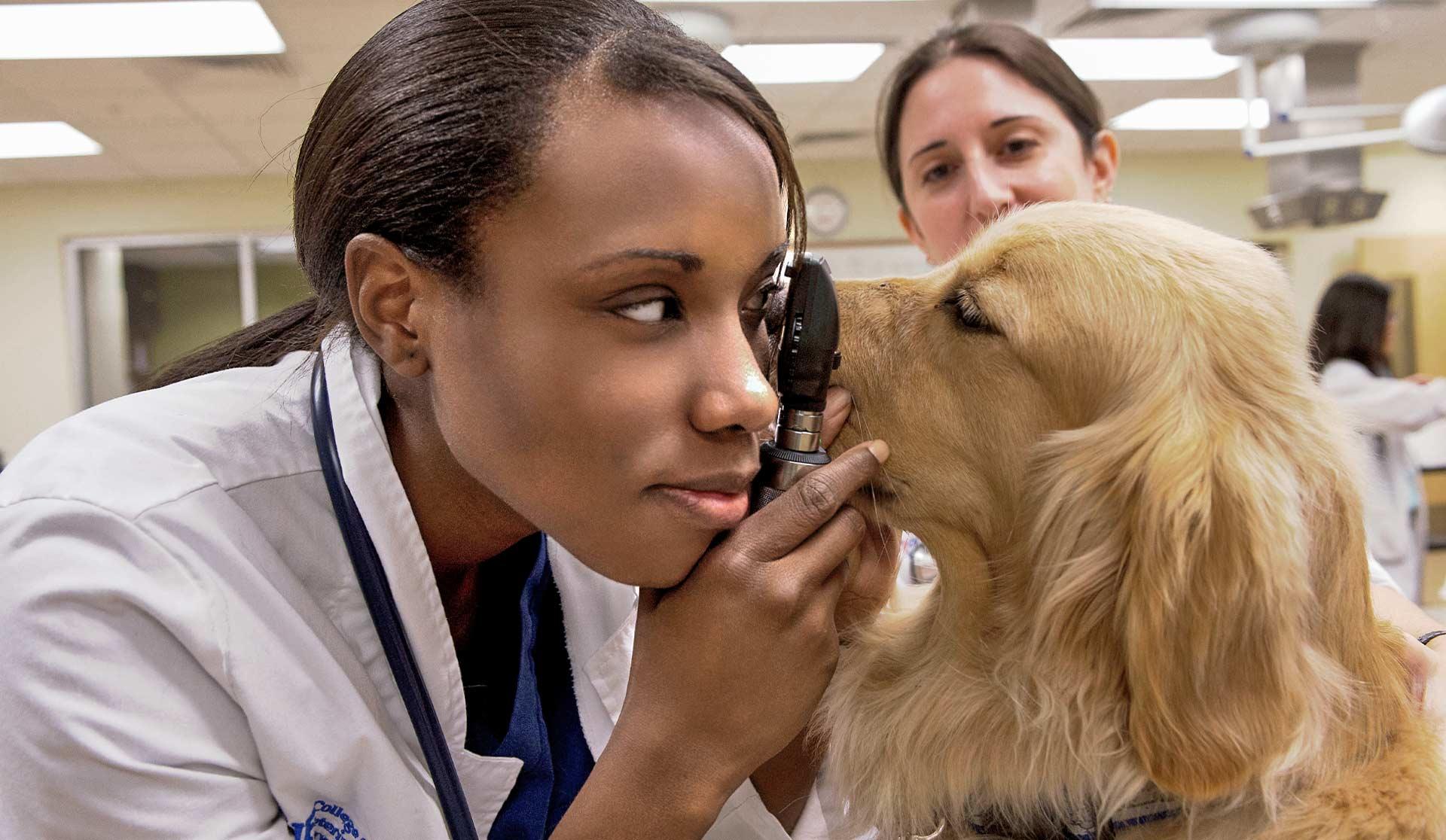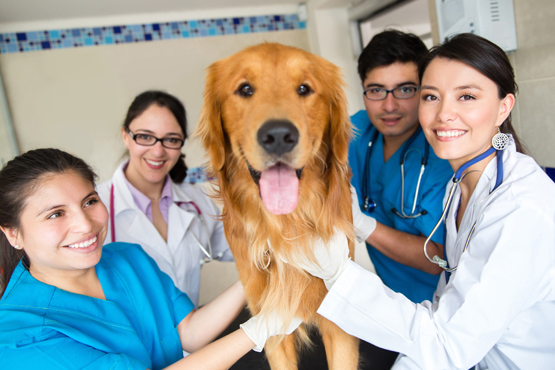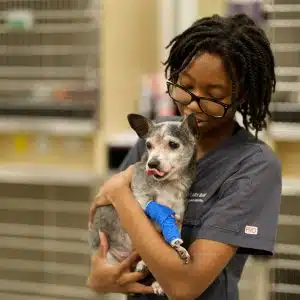How a Veterinary Cancer Specialist is vital in effective cancer care
Wiki Article
The Value of Early Detection: Insights From a Vet Oncologist
Early discovery of cancer in pet dogs is a crucial topic for pet proprietors and veterinary specialists alike. Vet oncologists emphasize the importance of recognizing refined indications that may suggest serious health and wellness concerns. Usual symptoms usually go undetected till they intensify. Understanding these early warning indicators and advancements in diagnostic techniques can make a considerable distinction. What actions can animal proprietors take to enhance their family pets' chances of very early diagnosis and better therapy results?Recognizing Cancer in Animals: Typical Types and Signs
While numerous family pet owners might not understand it, cancer cells is a significant health and wellness concern influencing animals, just like it performs in humans. Typical kinds of cancer in pet dogs include lymphoma, pole cell growths, osteosarcoma, and mammary lumps. These hatreds can manifest in numerous methods, depending upon their area and kind. Signs usually include unexplained fat burning, consistent vomiting, modifications in cravings, or unusual swellings and bumps. Pet dogs may additionally display lethargy, trouble breathing, or unwillingness to workout, which can show underlying health and wellness concerns. Early indicators can be refined, making it crucial for pet dog owners to be watchful of their animals' behaviors and physical condition. Understanding these common types and connected symptoms can equip proprietors to look for vet treatment promptly, possibly resulting in earlier diagnosis and therapy choices. Identifying the indications of cancer cells in pets is an important step towards enhancing their health and lifestyle.The Role of Veterinary Oncologists in Very Early Detection
Veterinary oncologists play an essential duty in the very early detection of cancer cells in pet dogs, as their specialized training furnishes them with the skills required to identify subtle indications that may be forgotten by general professionals. They use a combination of clinical expertise and progressed diagnostic devices to evaluate patients thoroughly - Veterinary Oncology Services. By acknowledging early symptoms and threat factors, oncologists can guide pet dog owners toward prompt interventions, increasing the possibilities of effective treatmentVet oncologists typically collaborate with general professionals to establish screening protocols customized to details breeds or age teams, improving the efficiency of very early discovery efforts. They inform pet dog proprietors on the significance of routine exams and understanding of adjustments in actions or physical condition. Through these aggressive procedures, vet oncologists significantly contribute to enhancing outcomes for pets identified with cancer, highlighting the essential nature of their role in veterinary healthcare.
Advancements in Diagnostic Techniques for Animal Cancer
Innovations in analysis strategies have substantially improved the capability to detect cancer in animals at earlier stages. Strategies such as innovative imaging, consisting of MRI and CT scans, supply comprehensive internal sights, enabling veterinarians to recognize growths that may not be palpable. In addition, the growth of minimally intrusive treatments, such as fine needle aspirates and biopsies, allows exact tasting of tissues for histopathological examination with minimized stress for the animal.Emerging molecular diagnostics, consisting of hereditary screening and biomarker identification, are changing Veterinary Cancer Specialist the landscape of vet oncology. These techniques can determine particular cancer types and anticipate reactions to treatment, facilitating customized treatment strategies. Advancements in lab strategies, such as liquid biopsies, are starting to provide non-invasive options for keeping track of growth progression and treatment effectiveness. Jointly, these developments represent a substantial jump forward in vet medication, highlighting the vital duty of very early detection in improving results for pet dogs diagnosed with cancer.
How Animal Owners Can Acknowledge Indication
Exactly how can family pet proprietors become attentive in recognizing possible indication of cancer cells? Understanding of behavioral and physical adjustments in animals is essential. Common indications include uncommon lethargy, anorexia nervosa, or sudden weight adjustments. Animal owners need to likewise pay focus to relentless vomiting or diarrhea, which may signify underlying problems.Modifications in the skin, such as lumps, bumps, or sores that do not heal, require instant vet interest. Furthermore, proprietors must keep in mind adjustments in drinking practices, raised peeing, or problem in breathing. Unexplained limping or pain may also be indications of even more severe conditions.
Routine veterinary exams can aid recognize these indication early. By preserving a close observation of their pet dogs' health and habits, owners can play a key duty in early detection, potentially causing much better outcomes should cancer cells be identified. Recognizing these indicators may greatly impact a family pet's lifestyle.
The Impact of Very Early Detection on Treatment Outcomes
Early detection of cancer in family pets plays an important duty in determining therapy end results, as it usually allows for a broader variety of restorative options. When cancer cells is identified in its beginning, vets can apply much less intrusive therapies, boosting the probability of successful intervention. Early-stage cancers cells might likewise respond much better to radiation treatment or radiation, bring about improved survival prices and general lifestyle for the animal.Additionally, timely medical diagnosis assists in an extra tailored treatment strategy, aligning with the certain demands of the animal. This can include tailored drug routines or surgical interventions that are less hostile. Conversely, late-stage detection usually results in restricted choices, much more aggressive therapies, and poorer prognoses. Subsequently, the importance of very early discovery can not be overemphasized; it fundamentally changes the trajectory of treatment, making it important for animal proprietors to continue to be attentive for any type of indications of health problem in their cherished companions.
Often Asked Concerns

Just How Can Diet Influence Cancer Risk in Pets?
Diet plan substantially affects cancer cells risk in family pets, as specific nutrients and food types can either promote or inhibit tumor growth. A balanced, nutrient-rich diet might help in reducing the possibility of establishing cancer in animals.
Are Particular Breeds Extra Prone to Cancer cells?
Particular pet dog types, such as Golden Retrievers and Fighters, display greater cancer vulnerability because of genetic predispositions. In a similar way, some feline breeds additionally show raised cancer dangers, highlighting the significance of breed-specific health and wellness recognition among pet proprietors.What Are the Costs Connected With Early Cancer Cells Discovery?
The expenses connected with early cancer cells discovery can vary considerably, incorporating analysis tests, consultations, and potential therapies - Veterinary Cancer Specialist. Investing in these solutions usually brings about much better health results, ultimately saving money on more comprehensive future clinical expensesCan Vaccines Avoid Cancer in Pets?


Vaccinations might decrease the risk of particular cancers cells in pet dogs, specifically those connected to viral infections. Their effectiveness differs, and animal owners should consult vets for tailored suggestions relating to vaccination and cancer cells prevention approaches.
Exactly How Usually Should Family Pets Be Evaluated for Cancer cells?
Pet dogs should typically be screened for cancer every year, specifically as they mature or if they exhibit danger aspects. Normal vet exams can aid recognize potential issues early, improving treatment outcomes and overall health management.Early discovery of cancer in animals is a necessary topic for animal proprietors and veterinary experts alike. Early signs can be refined, making it vital for pet dog owners to be observant of their family pets' behaviors and physical problem. Veterinary oncologists play an essential function in the very early discovery of cancer in pet dogs, as their specialized training outfits them with the abilities necessary to identify subtle indications that might be ignored by general specialists. By maintaining a close observation of their pet dogs' wellness and habits, owners can play a key duty in very early detection, potentially leading to far better end results need to cancer cells be identified. Early detection of cancer cells in pets plays a vital function in establishing therapy end results, as it typically enables for a broader variety of restorative choices.
Report this wiki page